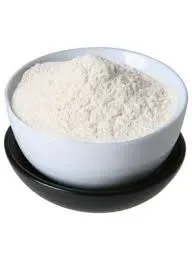
Қар . 09, 2024 21:10 Back to list
Hydroxyethyl Cellulose Analysis and Applications in Various Industries
Hydroxyethyl Cellulose Properties, Applications, and Market Overview
Hydroxyethyl Cellulose (HEC) is a non-ionic, water-soluble polymer derived from cellulose, a natural biopolymer abundantly found in plant cell walls. The chemical formula for HEC involves the reaction of cellulose with ethylene oxide, resulting in a versatile compound with various applications in multiple industries. With the CAS number 9004-62-0, HEC has gained significant attention due to its unique properties and benefits.
Properties of Hydroxyethyl Cellulose
HEC is characterized by its high molecular weight, which can be tailored during the manufacturing process. This polymer displays excellent thickening, gelling, and stabilizing properties, making it an ideal additive in various formulations. One of the remarkable features of HEC is its solubility in both hot and cold water, allowing for easy incorporation into different media. HEC solutions exhibit pseudo-plastic behavior, meaning their viscosity decreases under shear stress; this property is particularly beneficial in applications where easy application is paramount.
Additionally, HEC is chemically stable and does not react adversely with other compounds, which ensures compatibility when used alongside other ingredients. It is also biodegradable and non-toxic, contributing to its growing popularity as a sustainable alternative in many formulation contexts.
Applications of Hydroxyethyl Cellulose
The versatility of Hydroxyethyl Cellulose has led to its widespread use across various industries, including cosmetics, pharmaceuticals, food production, and construction.
1. Cosmetics and Personal Care In the cosmetics industry, HEC functions as a thickening agent, providing desired viscosity to creams, lotions, gels, and shampoos. Its ability to enhance the texture and stability of products has made it a go-to ingredient in both skin and hair care formulations. Additionally, HEC helps in moisturizing effects, adhering to skin and hair surfaces for an extended duration.
hydroxyethyl cellulose cas no

2. Pharmaceuticals HEC plays a critical role in the pharmaceutical sector as an excipient. It is utilized in various dosage forms such as tablets, capsules, and topical applications. Its thickening properties are exploited to enhance the viscosity of solutions and suspensions, thereby improving the stability and efficacy of active pharmaceutical ingredients.
3. Food Industry In the food sector, HEC is used as a thickening agent and stabilizer in various food products, including sauces, dressings, and dairy items. It helps maintain the texture and consistency of food products, making them more appealing to consumers.
4. Construction The construction industry employs HEC as an additive in cement-based products. It improves the workability of mortar and plaster, providing better adhesion and reducing water content, which enhances the final structure's performance and durability.
Market Overview and Trends
The global market for Hydroxyethyl Cellulose has been expanding steadily, driven by its unique properties and myriad applications across diverse industries. The increasing demand for natural and sustainable additives has further propelled its market growth. As consumers become more conscious of the ingredients used in their daily products, manufacturers are turning to HEC as a safe alternative to synthetic additives.
Moreover, the rise in construction activities in emerging economies, coupled with growth in the cosmetics and personal care sector, supports the increasing consumption of Hydroxyethyl Cellulose. The COVID-19 pandemic has also underscored the importance of effective personal care and hygiene products, stimulating the demand for HEC in formulations that enhance texture and performance.
Conclusion
In summary, Hydroxyethyl Cellulose is a versatile and valuable polymer with numerous applications across various industries. Its unique properties, including excellent thickening, gelling, and stabilizing capabilities, have made it a sought-after ingredient in cosmetics, pharmaceuticals, food, and construction. As industries continue to seek sustainable and effective solutions, the relevance of HEC is likely to grow, positioning it as a prominent additive for the future. With ongoing research and development, we can expect even more innovative applications and formulations utilizing Hydroxyethyl Cellulose, reinforcing its status as a key player in the global market.
-
The Widespread Application of Redispersible Powder in Construction and Building Materials
NewsMay.16,2025
-
The Widespread Application of Hpmc in the Detergent Industry
NewsMay.16,2025
-
The Main Applications of Hydroxyethyl Cellulose in Paints and Coatings
NewsMay.16,2025
-
Mortar Bonding Agent: the Key to Enhancing the Adhesion Between New and Old Mortar Layers and Between Mortar and Different Substrates
NewsMay.16,2025
-
HPMC: Application as a thickener and excipient
NewsMay.16,2025
-
Hec Cellulose Cellulose: Multi functional dispersants and high-efficiency thickeners
NewsMay.16,2025







